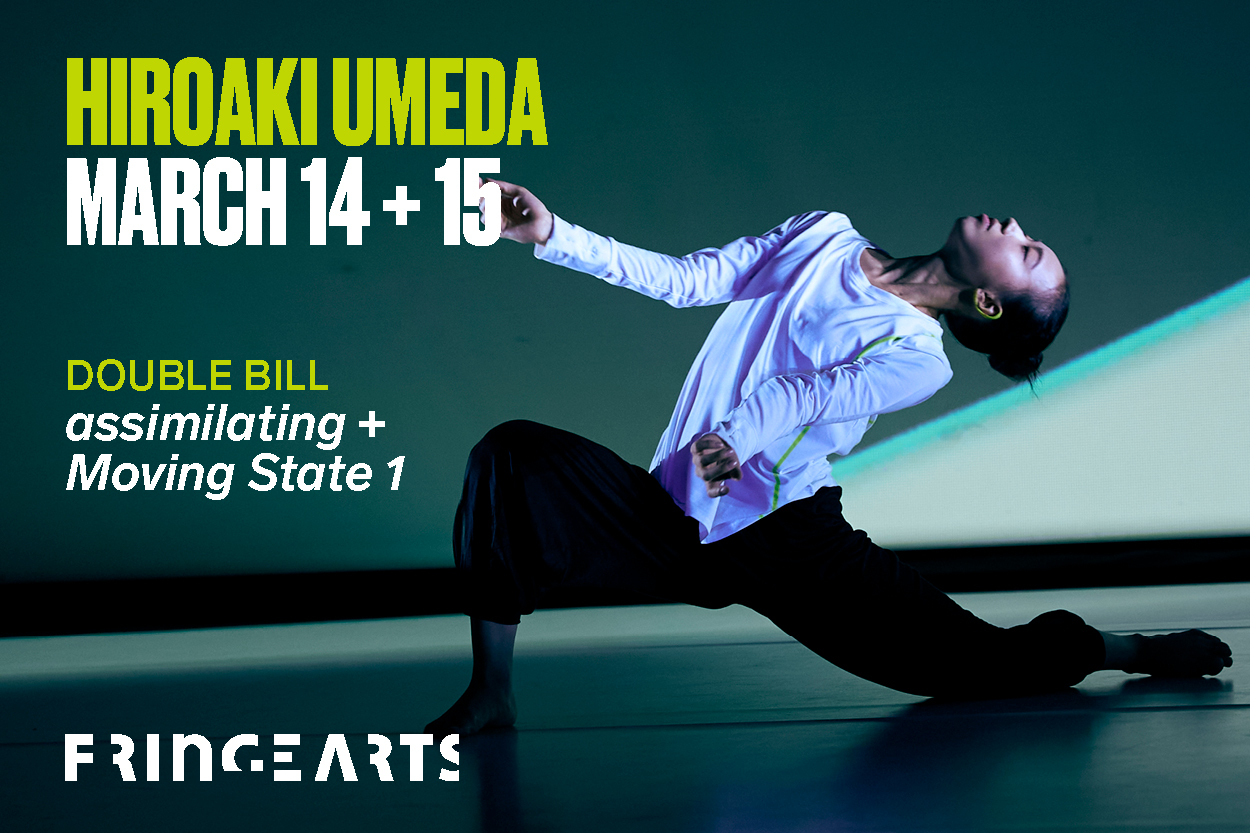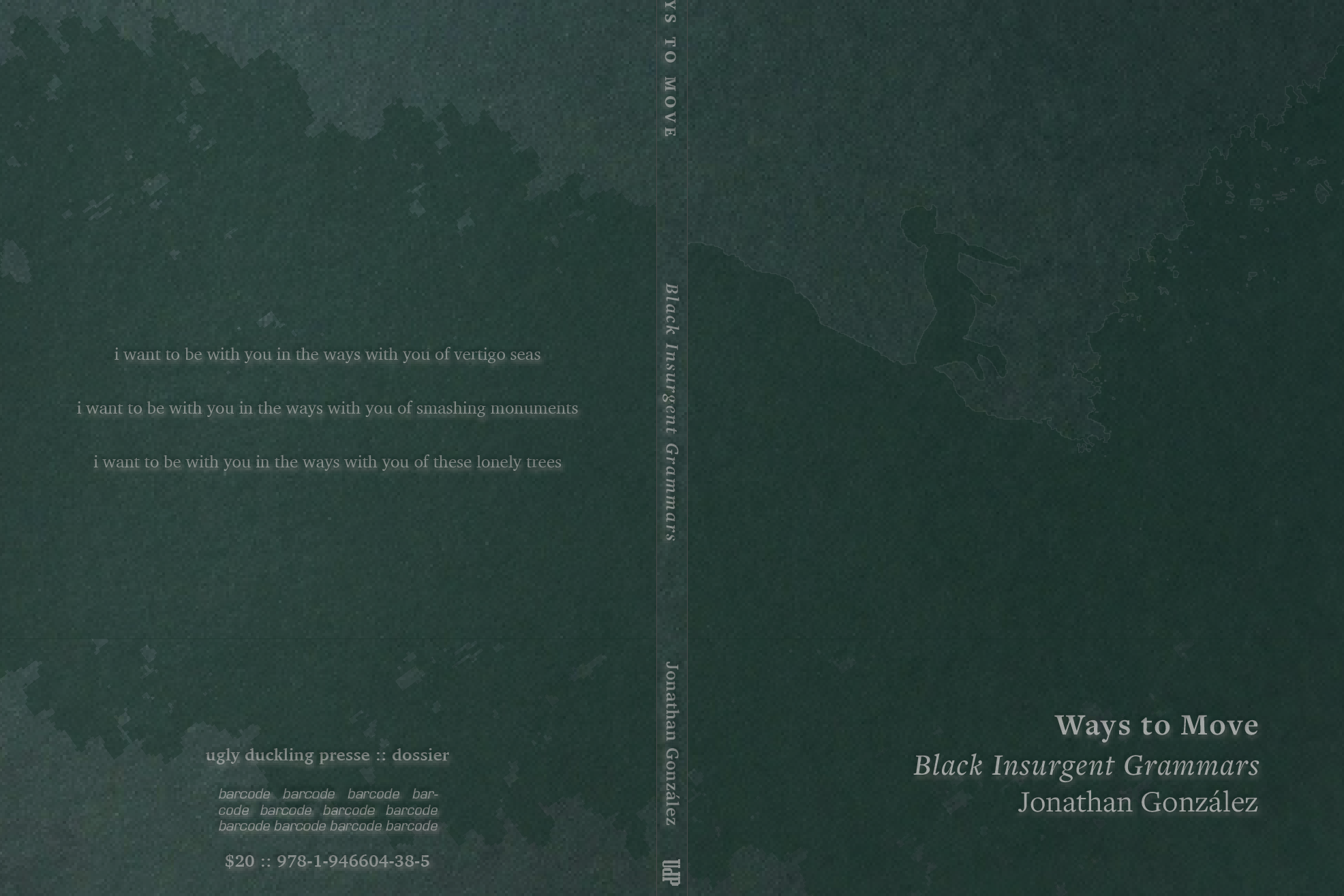BABYLIFT, Anh Vo’s multimedia solo that grapples with the afterlives of the Vietnam War, may be marked by loss on multiple levels. But it is also a reminder that absence is rarely empty. Although Vo has performed versions of the piece in the past, when BABYLIFT premiered at Target Margin Theater there was no audience or livestream. Still, the piece has ways of seeping into the public sphere: clips of past iterations haunt the internet, and conversations like this one serve as imperfect, micro-performances. As Vo and I talked about history, ritual, and erotic encounters, it became clear that the audience has remained firmly present in BABYLIFT, even when that presence is only spectral.
Our conversation has been edited for length and clarity.
Emma Cohen: Can you give a bit of context for BABYLIFT?
Anh Vo: The piece is named after an actual historical operation where the U.S. airlifted South Vietnamese orphans out to the U.S. and other Western countries. But I don’t really deal with the operation itself. Really, it feels like a poetic reaction: “whoa, you end the war with lifting.” Even the word “babylift,” formally, is just wild. It seems so visceral, and it felt like I had to name the piece “babylift” even before I knew what the piece was going to be.
From there the piece kind of meandered. But it started with the very concrete task of conjuring ghosts. I was really focusing on that through the projection of photojournalistic images that came out of the Vietnam War. The images have a very strong resonance here—not for me, because those images are made to circulate here [in the U.S.]. I don’t have a pre-history with them in the same way. I think a lot of people here do, whether they know it or not. In the end, I settled with using just Thích Quảng Đức’s self-immolation image. That photo has many associations for people here.
I guess that’s where the piece steers away from the original task of conjuring ghosts: the more I perform it, the more it feels like I have to be responsive to the audience. It’s not just this simple act of baring my history and digging into my intergenerational trauma, that’s not what I really set out to do. It becomes very responsive to this country, to postmodern dance, to happenings, to the fantasy of the 60’s. All of that very much, for me, paralleled the image and the war in ways that people don’t think about.
And then the pandemic happened, which allowed me to go back to the ghosts. Now I really revert back to the more ritualistic feeling that I started with. That’s the chronological and compositional arch.
EC: It seems you’re pushing against a straightforward, linear approach to history. I’m curious to hear a little bit more about how you’re able to approach historical material in a way that puts tension on traditional narratives.
AV: That’s funny you ask that, because in the very first showing of the more theatrical material, where I speak, I gave a straightforward, lectured timeline. It was like: “1945, this happened, this happened, the French got kicked out.” Looking back, I was totally struggling with how to engage an audience. Because the piece started with conjuring ghosts, I thought, “they have to know this history. I can’t take that for granted, this is important.” And then I literally went into a lecture. Oh my god, it just felt so bad.
I went back and scrambled it. I just unconsciously tore [the lecture] apart. I didn’t know what I was doing, I really didn’t. Even though I believe in nonlinear history, it’s hard to undo it. But that’s where abstraction came in, because I think abstraction allows you to hide things from yourself. I started psychoanalysis recently, and it’s very clear for me that in these moments where you just associate and go with emotion and cut things and collage them, there’s so much memory and history behind the unconscious, intuitive act. And it’s unknown to myself as much as it’s unknown to an audience.
And then, you realize that linear teaching would not help people. In a way, this more associative [method] of “1945, World War Two” and then suddenly “happenings, Judson Dance Theater” … just the juxtaposition, placing them next to each other, it is powerful. Whenever the word “happening” or “Judson Dance” is enunciated in the piece there’s an inaudible gasp in the audience. A true implication that they didn’t expect. I didn’t expect it either; it flowed out as I sat with the materials.
EC: In some of the material surrounding the show you use the term “erotic hauntings”—can you tell me how you’ve been thinking about that concept in relation to the piece?
AV: That word came later. It’s still a very unarticulated thing for me. I did not plan to do sex stuff. The work started with conjuring ghosts in the most stereotypical sense: ominous, cold, violent. And then the sex stuff just kind of emerged as I start accounting for the audience. I think my work in general thinks about the audience and tries to offer something. And the sex stuff just came out. The erotic is always there.
Thinking about it I realize, “Oh my god, if I perform this piece in Vietnam it will feel so blasphemous.” Because Vietnamese culture is very in tune with that ghostly presence. But sex is a very blasphemous thing, it’s very mundane, it’s not supposed to mix with the sacred. So that’s where I have the more Western experimental performance hat on, because that wouldn’t fly in Vietnam.
EC: It seems like this element will be very different now that there isn’t going to be an audience. I guess any gesture is different when you’re performing it in front of people versus performing it for yourself, but with sexual gestures in particular it seems like the quality would change without viewers.
AV: It definitely changed. I have a friend who serves as a dramaturg, and when we did an internal run-through she was like, “Woah it’s so soft. Do you mean that to be soft?” But it’s true. That sexual energy really went down. Because there’s no one to lure. The sex comes with bringing this material to the audience.
EC: Will there be anyone in the room with you when you perform?
AV: There will be the stage manager. And the sound designer is actually going to be onstage with me. It doesn’t feel too alone in that sense. And when I perform this piece it really has this devotion to a higher being, this religious thing, even though I’m not religious. This superstitious idea that something is up there. I’m performing for them.
The thought crossed my head: am I being so conservative that I just insist on having a live performance? It feels like a conservative gesture—it is. But I tried to perform this piece with another piece I work on, Non-Binary Pussy. I remixed them together and put it on Instagram Live in November. And it got banned. Halfway through it shut down. And then as part of this residency upstate I tried doing a durational thing, not born for the digital attention span. And it didn’t feel good either.
I want the work to be consumed the way it deserves to be.
EC: I’m very curious to see how this piece continues to circulate, and how it feels over time.
AV: I am as curious as you are. There’s a new element to the work every day. Letting the work be the compass has been a very humbling experience.
Interview with Anh Vo, conducted via Zoom, Jan. 27.






